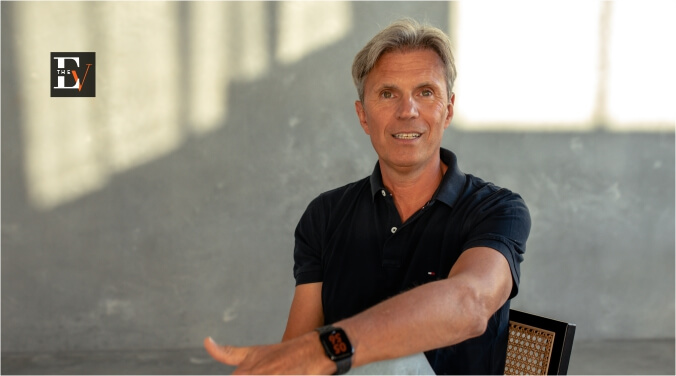The best visionary leaders in business and executive coaching are distinguished by using their potential to inspire and guide others in the direction of a compelling future. These leaders utilize innovative thinking, strategic foresight and profound expertise in human behavior to drive meaningful change and create a lasting impact. They possess a unique capacity to check possibilities and effectively communicate their vision and prescient, motivating groups to pursue shared goals.
These leaders approach challenges with a holistic mindset, recognizing the problematic interconnectedness of organizational dynamics and individual motivations. By prioritizing the big picture and the finer details, they cultivate environments wherein creativity and collaboration can flourish. Their management is characterized by integrative questioning, permitting them to embrace diverse perspectives and synthesize insights from diverse resources to increase revolutionary answers.
Empowerment is a core tenet in his leadership style; Christoffel Sneijders—the Executive Coach MCC & Founder at 3 Brains Intelligence—focuses on developing autonomy inside their teams while building a culture of trust and accountability. Furthermore, he promotes continuous learning, encouraging a growth mindset that emphasizes adaptability and resilience in the face of change.
He also employs clear communication strategies to articulate an inspiring vision and vision that aligns with organizational targets. He includes his groups in collaborative decision-making procedures, leveraging collective intelligence to enhance buy-in and commitment. regular feedback and reflection, he guarantees alignment with their vision and positioning their organizations to navigate challenges and seize opportunities effectively.
Embracing a Holistic Approach to Leadership Development
Christoffel began his career 30 years ago in behavioral leadership, sales and coaching. His journey was significantly influenced by the realization that traditional approaches often focused solely on cognitive processes (the head), prompting him to explore more integrative methods.
His experience with burnout 20 years ago served as a harsh reminder that knowledge alone does not lead to action. He recognized that logic was insufficient to address the emotional and instinctual complexities individuals face.
Key moments in his career included observing a Senior Vice President client who was living with chronic anxiety, ultimately leading to a thyroid operation. Despite having clear cognitive strategies, the client struggled to implement change, illustrating the gap between understanding and action. Christoffel’s work with PTSD survivors revealed how emotional (heart) and instinctual (gut) reactions often overshadow logical reasoning.
These insights inspired him to develop the 3 Brains Intelligence Theory, which offers a holistic approach that encompasses the Head, Heart and Gut, aiming for genuinely transformational change.
The Power of the 3 Brains in Decision-making
The 3 Brains Intelligence Theory, developed by Christoffel, posits that each brain plays a distinct role in decision-making. The Head Brain is responsible for logic and cause-and-effect analysis, while the Heart Brain manages emotions and social connections. The Gut Brain oversees instincts and survival. For holistic decisions to be made, all three brains must align.
When the Head, Heart and Gut communicate effectively, decisions are not only rational but also emotionally balanced and instinctively grounded. This integration empowers individuals and leaders to navigate complex situations with clarity, empathy and resilience. His approach fosters outcomes that resonate on all levels.
Decoding Human Intelligence
One of the unique aspects of the 3 Brains Intelligence Theory is its foundation in scientific research, drawing upon evolutionary biology and neuroscience. Inspired by the works of Paul Ivan Yakolev, Dr. Michael D. Gershon, Dr. Andrew Amour, and HeartMath, Christoffel discovered that Head, Heart and Gut brains evolved with distinct purposes:
- The Gut Brainfor survival and quick decision-making,
- The Heart Brainfor social connection and emotional processing
- The Head Brainfor problem-solving and logical reasoning.
This understanding helped answer a critical question he had: “Who is in charge of our emotions, behavior and subconscious?”
The realization that each brain could lead to different, often conflicting outcomes was a true ‘Eureka’ moment. This breakthrough explained why individuals experience internal conflict and struggle to break free from unhealthy or unproductive behaviors.
Christoffel states, “This insight formed the basis of the 3 Brains Intelligence Theory, which I now apply in my 3 Brains Intelligence Coaching Certification Training, Business Coaching, Leadership Training, and Therapy. By aligning these three centers of intelligence, I help leaders and individuals overcome internal conflicts, enhance decision-making and achieve a more balanced, fulfilling life.”
Techniques for Enhancing Self-awareness in Leadership
Christoffel utilizes the 3 Brains Intelligence model in his coaching to help clients identify which brain dominates their decision-making and which may be silent, protecting them from discomfort.
This approach enhances self-awareness and reveals internal conflicts. For instance, a leader may understand the need for change through the Head Brain but feel emotionally unprepared due to the Heart Brain’s concerns or face instinctive resistance from the Gut Brain.
By addressing these discrepancies, he empowers clients to align their actions, transforming indecisiveness into impactful choices and helping individuals overcome emotional barriers like fear of failure and burnout.
Understanding the Impact of the Gut Brain on Emotions
Burnout and PTSD are complex challenges that require more than cognitive solutions. Christoffel’s 3 Brains Intelligence approach highlights that trauma often resides in the Gut Brain, while burnout is felt in the Heart Brain.
These brains do not adhere to time, making past experiences feel immediate. By guiding clients to recognize that these emotional memories are rooted in the past, painful recollections can transform into mere memories.
He employs specific 3 Brains Coaching Techniques, integrating somatic exercises, NLP, conversational hypnosis, and narrative reframing, enabling clients to connect with all three brains and effectively manage their symptoms, regaining control and resilience.
The Emotional Intelligence Advantage for Leaders
Leaders who align their 3 Brains make more authentic decisions by engaging their internal guidance systems. Christoffel highlights that integrating the Gut Brain’s instincts enhances decisiveness while attuning to the Heart Brain fosters empathy. This alignment strengthens emotional intelligence and results orientation, enabling leaders to achieve desired outcomes collaboratively.
Developing Resilient Change Strategies
Christoffel asserts that lasting change requires alignment across the 3 Brains, as logic, emotions and instincts must all be engaged. He guides clients in identifying internal resistance and developing resonant strategies. In organizational change, he ensures logical steps align with emotional purpose and instinctual readiness, fostering authenticity and resilience in the process.
Enhancing Mental and Physical Health
Christoffel prioritizes self-care by nurturing all three of his brains. He stimulates his Head Brain through research and laughter, connects deeply with loved ones for his Heart Brain and focuses on physical wellness for his Gut Brain through exercise and a healthy diet. These practices keep him present and energized for his clients.
A New Paradigm in Leadership
Christoffel envisions a future where leaders and coaches adopt an integrated understanding of human behavior through the interplay of the Head, Heart and Gut Brains. He aims to promote the 3 Brains Intelligence Theory globally and provide training programs to redefine effective leadership with a focus on authenticity and human-centered practices.






